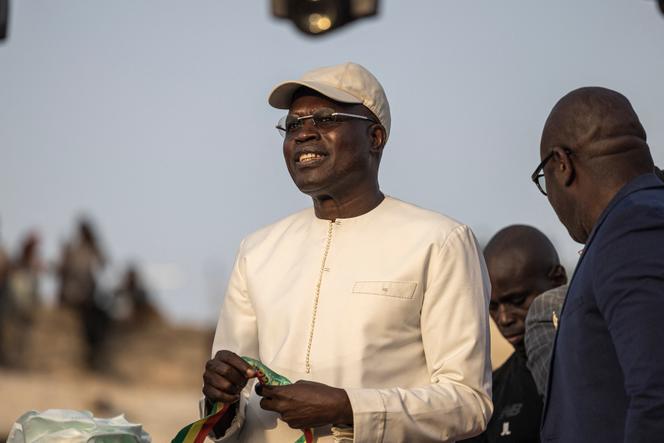


Khalifa Sall is one of the favorites in Senegal's presidential election. The former mayor of Dakar says President Macky Sall's move on Saturday, February 3, to postpone the ballot initially scheduled for February 25 is unjustified and will allow him to serve an illegitimate third term. The opponent, now head of the Taxawu Sénégal movement, calls on his fellow citizens to mobilize "by all possible means."
Khalifa Sall: The debate on postponement has been ongoing for several months within the presidential majority. But as the presidential election is a sacred institution in Senegal, respected by all, I always thought that President Sall would never touch it. Particularly because, despite the troubles, the presidential election has always been held on time in our country.
But on Saturday, the Rubicon was crossed, much to our surprise! I was one of those who thought that the president, after renouncing a third term, would go down in history by organizing inclusive and transparent elections. For someone who said he was preparing his professional reconversion to serve Senegal, this is disappointing.
It is a coup d'état that doesn't speak its name. With the change in the law, he is entering a third term of office, even if it will be incomplete. Since he will be president after April 2, he is violating essential provisions of the Constitution and the Electoral Code.
The pretext put forward is therefore inadmissible. In addition, Macky Sall invokes a problem between the National Assembly and the Constitutional Council that does not exist. There can be no conflict of jurisdiction, because each institution has its own powers.
Even if MPs have the right to set up a commission of inquiry into corruption, they know its limits! The Constitutional Council is as free and independent an institution as the Assembly. Magistrates are governed by specific provisions. In the name of the separation of powers, they cannot hear judges under suspicion. Magistrates can only be heard with the authorization of the High Council of the Judiciary.
The crisis is primarily situated within the presidential majority, between the head of state and his prime minister, whom he has chosen as his candidate. However, a political problem should not be at the root of this upheaval in our democratic life.
You have 55% of this article left to read. The rest is for subscribers only.
